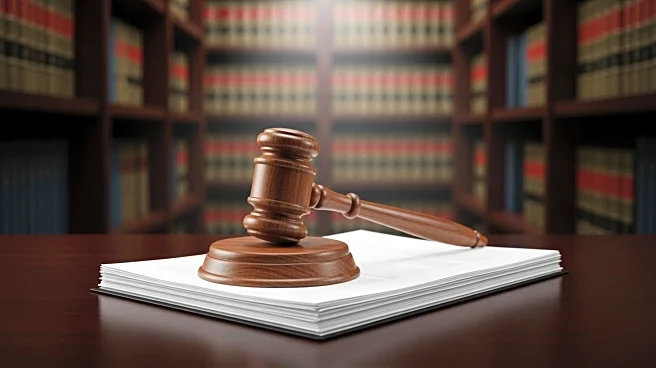What's Happening?
Utah Republican legislators have announced their intention to appeal a district court ruling that implemented new congressional boundaries for the 2026 midterm elections. The ruling by 3rd District Judge Dianna Gibson rejected a map adopted by the Legislature,
favoring a Democratic-leaning district in northern Salt Lake County. In response, GOP leaders plan to convene a special session on December 9 to propose a constitutional amendment for the 2026 ballot, aiming to ensure lawmakers retain the ability to draw political boundaries. Governor Spencer Cox supports the initiative, emphasizing the importance of representative democracy over direct democracy.
Why It's Important?
The decision to appeal the court ruling and propose a constitutional amendment highlights ongoing tensions between direct democracy initiatives and legislative authority in Utah. The GOP's actions could significantly impact the state's political landscape, potentially altering representation in Congress. The move also reflects broader national debates over gerrymandering and the balance of power between voters and elected officials. If successful, the amendment could limit the influence of voter-led initiatives, affecting how political boundaries are drawn in the future.
What's Next?
The special session scheduled for December 9 will be crucial in determining the next steps for the proposed constitutional amendment. If the amendment is placed on the ballot, it will be up to Utah voters to decide its fate. Meanwhile, the appeal to the Supreme Court could lead to further legal battles over the congressional map. The outcome of these efforts will shape the political dynamics in Utah, influencing both the 2026 elections and future redistricting processes.
Beyond the Headlines
The GOP's push for a constitutional amendment raises questions about the role of direct democracy in Utah. Critics argue that limiting voter-led initiatives could undermine public trust in government and reduce citizen engagement. The debate also touches on ethical considerations regarding the fairness of political representation and the potential for partisan gerrymandering. As the situation unfolds, it may prompt broader discussions on the balance between legislative power and voter influence in shaping democratic processes.















